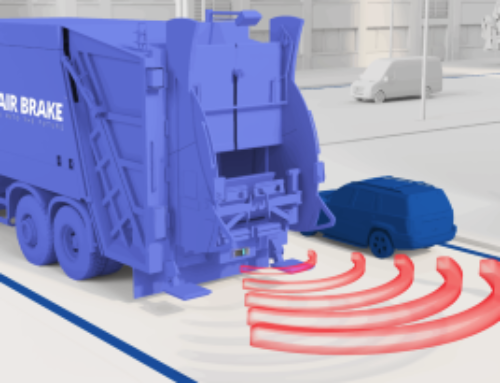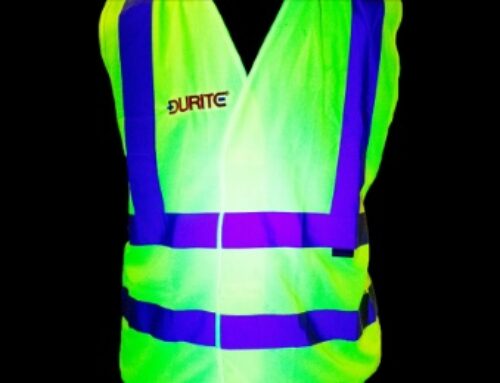Keeping tabs on training
 Audit findings often highlight a lack of planning and record-keeping with regard to training, says Derek Broomfield, chairman of Novadata
Audit findings often highlight a lack of planning and record-keeping with regard to training, says Derek Broomfield, chairman of Novadata
One of the services that Novadata offers is a Transport Systems & O-Licence Audit, including audits that are assessed against DVSA Earned Recognition standards. As both a training provider and a provider of transport systems audits, we have an unusual, perhaps unique, view of how often operators can forget that it is essential to plan and record the training of their managers, drivers and support staff.
It is surprising how often operators tell us that they are facing an audit by the authorities following one of their vehicles being stopped, and have realised that, although their managers and drivers do undertake appropriate training, they are going to find it very difficult to demonstrate this to an auditor.
These are usually organisations which we know regularly book both managers and drivers onto Transport Manager CPC Refresher courses or Driver CPC courses to ensure that they are current with best practice and legally entitled to drive – but they have not documented this clearly.
Training needs to be carefully planned and clearly recorded. It is certainly one of the things that will be scrutinised by the authorities in an inspection, so it is essential that you not only comply with training requirements, but can also provide evidence of compliance.
Who needs transport training?
Company directors
Directors tend to be busy overseeing their organisation’s core business, and they often see the O-licence as the domain of the transport manager. However, in law, the directors (business partners or owners) are legally responsible for ensuring that the undertakings of the O-licence are met. They are also answerable to the traffic commissioner, as they are ultimately responsible for their organisation’s compliance with the transport industry’s regulatory regime. You can’t totally delegate this responsibility to a transport manager; you can only share the legal responsibility with them.
It is vital, therefore, that directors understand their legal obligations, especially as the law changes and evolves. The best way to stay current with transport legislation and best practice is to attend an Operator Licence Awareness Training (OLAT) course. We recommend directors attend at least every five years to ensure they know what their legal duties entail and how to fulfil their O Licence undertakings.
Transport managers
A qualified transport manager should, of course, have a Transport Manager CPC qualification, which will mean attending a training course (although you can study independently for this) and passing examinations.
That should not be the end of their training. They need to keep up with changes in transport legislation and best practice over time. Some transport managers choose to attend Transport Manager CPC Refresher training every two or three years. We strongly advise attending at least every five years to stay up to date and make sure that you know how to protect your O-licence. UK traffic commissioners also recommend this.
Smaller organisations don’t always have a qualified in-house transport manager, but they still need to adhere to legislation such as drivers’ hours and the Working Time Directive. If you don’t have a transport manager on the payroll, it is wise to ensure that any manager involved in scheduling deliveries or organising drivers’ journeys attends a Drivers’ Hours Law for Managers course, and a Digital Tachograph Course for Managers & Supervisors.
It is important to ensure that managers can ensure that drivers use their tachographs correctly, and no-one is tempted to make drivers exceed their hours in order to keep the business’s wheels turning.
Drivers
Of course, your drivers must undertake 35 hours of Driver CPC training every five years. But you should always check that the hours have been uploaded to the DVSA database. It is also advisable to keep a log of any training drivers undertake (this should include details of both Driver CPC as well as any other work-related training). This will enable you to plan effectively and, importantly, avoid any unnecessary course repetition.
Dangerous goods training
More and more organisations are involved, one way or the other, with transporting dangerous goods. This brings about further training considerations. Often when facing an audit by enforcement authorities some operators realise that they should have appointed a Dangerous Goods Safety Advisor (DGSA); luckily, Novadata is able to assist via our DGSA consultancy service.
Drivers must also undertake training (even if they only carry limited quantities of dangerous goods) and, of course, go on to pass the ADR examinations to be fully qualified to drive vehicles containing dangerous goods of various types.
Both DGSA and ADR qualifications must be renewed every five years, so you will need to ensure that the qualifications are renewed in good time.
Remember though, dangerous goods training applies to others who also handle dangerous goods in, say, a warehouse, or simply prepare documentation ready for the goods transportation. So it is important to record when such training is completed.
Record, record, record
In all cases, training should be carefully considered and planned. It should also be documented with detailed records kept, giving you peace of mind; not only do you know that appropriate training is actually being conducted, you can now demonstrate this to anyone who is scrutinising your organisation. Such records could be vital, not only for DVSA enforcement visits but in a worse-case scenario such as a court of law following an accident.














